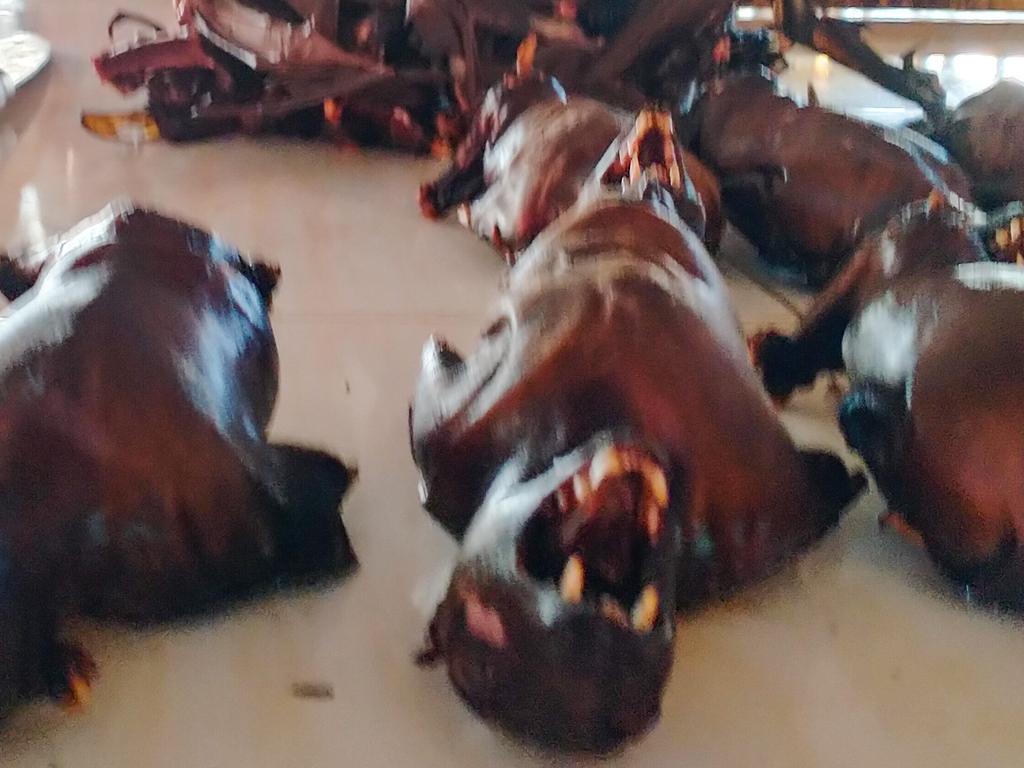Phasing out wild wet markets
Such wet markets — like Wuhan’s, where horseshoe bats are believed to have spawned the pandemic — are typical of similar, dangerously unhygienic markets across Southeast Asia and Africa. If ever an Australian leader deserved strong global backing for an initiative, it is surely Mr Morrison’s campaign to get the world to take decisive action over the wet markets. Scientists reportedly believe a staggering 70 per cent of emerging infectious diseases in humans are of zoonotic origin. According to estimates published in The Washington Post, there may be 1.7 million undiscovered viruses in wildlife, with researchers “searching for the ones that could cause the next animal-to-human spillover”, most likely from rodents and bats.
According to Thomas Gillespie, a disease ecologist at Emory University in the US, “bats have a superhero-like immune system that allows them to become reservoirs to many pathogens that do not impact them but can have a tremendous impact on us if they are able to make the jump”. Yet it is bats — slaughtered for their hearts, which are considered good for asthmatics — that are at the epicentre of speculation about the COVID-19 pandemic. They are sold widely in wet markets across Asia and Africa as well as South America. Australian Chief Veterinary Officer Mark Schipp has left no doubt about the global risks the markets pose. “Of the last six pandemics or large-scale emerging diseases since 1980, all have been associated with wild animals,” he pointed out. “(That includes) AIDS, SARS, swine flu, MERS, Ebola and now COVID-19.”
Mr Morrison’s case for global action over wet markets wherever they operate could hardly be more compelling. His disclosure of EU president Ursula von der Leyen’s support is vital. So is Agriculture Minister David Littleproud’s lobbying of his G20 counterparts. But with every one of the WHO’s 194 members paying a very high price for the coronavirus, a much wider consensus for decisive global action must be forthcoming. If there isn’t, we may as well all start preparing for the next pandemic.




Scott Morrison was right to emphasise that his campaign against wildlife wet markets “has never been directed only to one country”. The markets, the Prime Minister said on Wednesday, “exist in many places, just as the next pandemic could come from any country in the world”. That is a grim reality which all 194 World Health Organisation members must recognise as they prepare for next month’s scheduled World Health Assembly. As Amanda Hodge reported on Wednesday, Indonesia’s wildlife wet markets operate under conditions “similar to those in China that have led to the worst pandemic in a century, despite urgent warnings about the risks to human health”. In North Sulawesi’s notorious Tomohon “extreme meat” market, she reported, “rows of bat carcasses were lined up on bloodied butchers’ tables next to charred dog bodies and pig heads. Nearby eviscerated pythons hung suspended from meat hooks while other vendors sold whole cooked rats on sticks.”